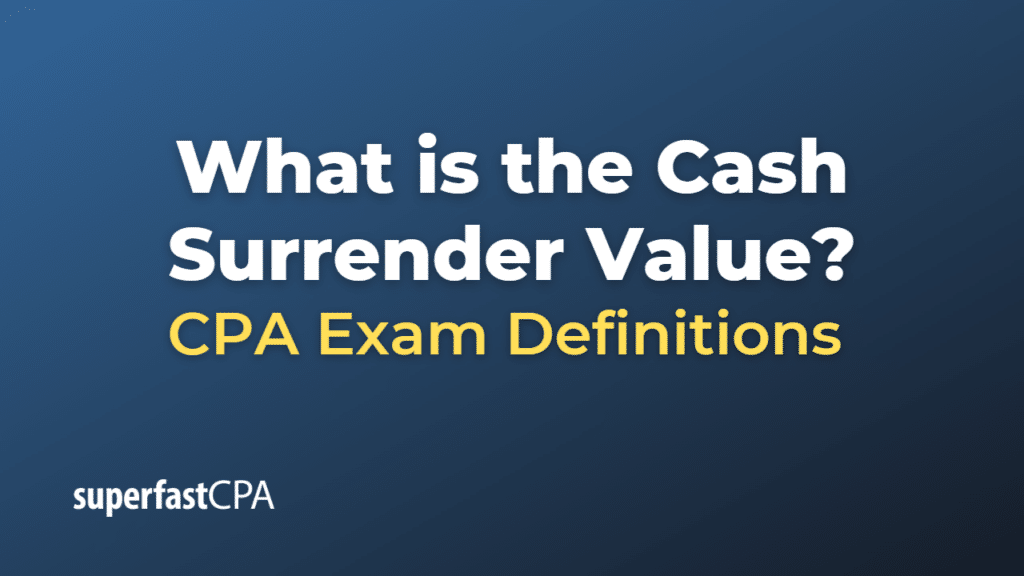Cash Surrender Value
Cash surrender value refers to the amount of money an insurance company pays to a policyholder if they decide to voluntarily terminate a whole life insurance or universal life insurance policy before it matures or before the insured event occurs (such as the death of the policyholder). In other words, it is the cash value that the policyholder can “surrender” the policy for, excluding any outstanding loans or fees.
The cash surrender value is typically built up over time as a portion of the policyholder’s premium payments accumulates within the policy in a cash value account. This account earns interest and may also benefit from dividends, depending on the terms of the policy. The longer the policy has been in force, the higher the cash surrender value is likely to be.
It’s important to note that surrendering a life insurance policy may have tax implications, and the policyholder will lose the death benefit associated with the policy. Therefore, it’s essential to carefully consider the financial consequences before deciding to surrender a life insurance policy.
Example of the Cash Surrender Value
Let’s consider an example of a whole life insurance policy with a cash surrender value.
John purchased a whole life insurance policy 15 years ago with an annual premium of $2,000 and a death benefit of $200,000. Over the years, a portion of John’s premium payments has been allocated to the policy’s cash value account, which has grown due to interest and dividends.
After 15 years, the cash value account has accumulated to $30,000. John encounters financial difficulties and decides to surrender the policy to access the cash value. The insurance company informs John that the cash surrender value of his policy is $27,000, which takes into account any applicable surrender charges or fees.
John decides to proceed with the surrender, and the insurance company pays him the cash surrender value of $27,000. As a result, John’s whole life insurance policy is terminated, and he loses the death benefit protection. Additionally, he may have to pay taxes on the gain (the difference between the cash surrender value and the total premiums paid).
It’s important to note that the surrender value, premiums, and death benefits in this example are for illustrative purposes only and may vary depending on the specific terms and conditions of an actual insurance policy.













